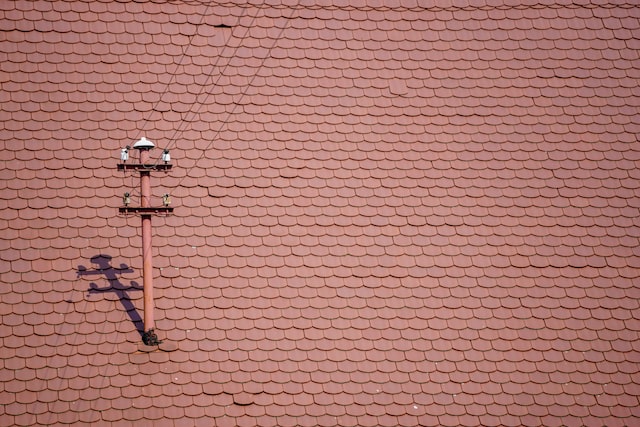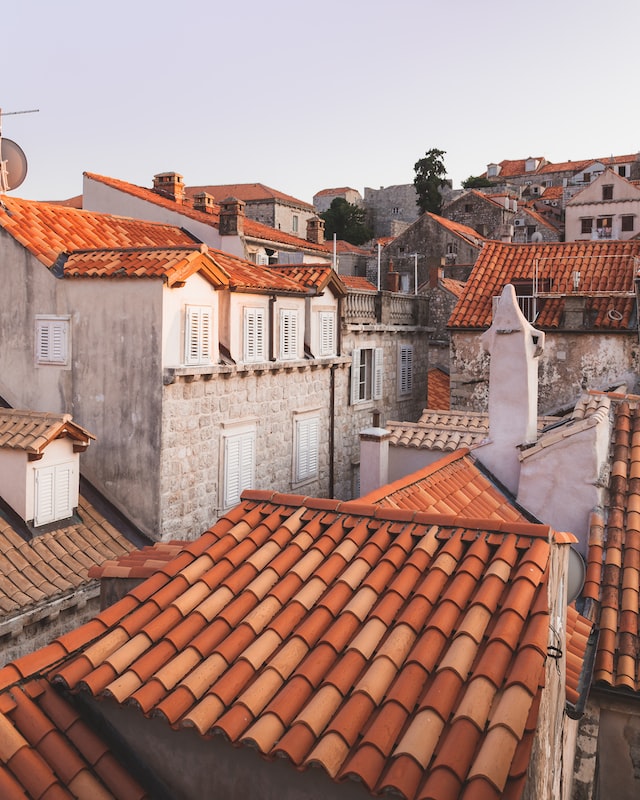Whether you’re renovating an older home or building a new one, there are many different types of roof tiles. These include ceramic, concrete, slate and glass. Each has its benefits and drawbacks. Keep reading to learn more about the different types of roofing in Coatbridge and roofing tiles available in the UK.

Ceramic
Consider ceramic roofing Coatbridge tiles if you’re looking for a roof that offers the best protection from inclement weather. They’re both durable and affordable. Ceramic roof tiles are an excellent choice for various applications, including residential and commercial roofs. There are several benefits to choosing ceramic tiles, including their ability to withstand extreme heat and UV rays. However, ceramic roof tiles should only be installed by a professional.
Ceramic roof tiles add both style and value to any home. They can mimic a slate roof and be customized in size, shape, and colour. In addition, they are incredibly durable and can last up to 80 years when installed properly. Ceramic tile roofs also typically carry long-term manufacturer warranties.
Concrete
Consider concrete roof tiles if you’re looking for a durable, long-lasting roof covering. These roof tiles can withstand storms and other elements and offer Class A Fire Ratings. However, they do need regular maintenance to stay in top shape. In addition, because of their concrete composition must be checked for cracks, chips, and other damages and repaired when necessary to ensure their continued performance.
Concrete roof tiles are a popular choice for homes in areas where they experience a lot of rain or snowfall. This type of roofing is highly durable and will last for decades. It also requires minimal maintenance compared to other roof covering materials and is safe for your home. Concrete tiles also reflect heat away from your home, helping you regulate indoor temperatures and reduce energy bills.
Slate
If you are considering installing slate roof tiles on your home, you have to be aware of certain factors that can affect the life of your roofing system. In choosing the suitable slate material, you should hire a roofing contractor with experience installing this type of roof. You should also know that your roof contractor will be able to provide you with a warranty. This warranty will cover both the installation and materials of the slate roof.
Slate roof tiles are available in a wide range of colours. However, you might not want to go with dark slate colours since they will not blend with your architectural scheme. For this reason, synthetic slate is a great option, allowing you to choose virtually any solid colour or blend. Additionally, you can order the slate ready to install. One of the disadvantages of natural slate is its price, which makes it a difficult choice. Synthetic slate has a lower price but also has the benefit of being lightweight and easy to install.
Glass
Glass roof tiles have many advantages over other types of tiles. They are highly durable and can be recycled. This makes them a green option suitable for solar heating systems. They are also aesthetically pleasing and can be installed on residential and commercial buildings. There are many glass roof tiles to choose from, and you can select the shape and size best suits your roof.
If you love clean lines and a minimalist aesthetic, smooth glass tiles are the way to go. They can create an organic bond between old and new architecture. In addition, they can develop ensembles that appear to grow from one central point. This can add a dynamic interplay of nuances typical of handcrafted products.
Trapezoidal sheet metal
Trapezoidal sheet metal roof tiles have many advantages. For one thing, these sheets have clean lines. They also have good structural properties. They are suitable for load-bearing roofs in public buildings, factories, and shopping centres. They are also available in a variety of colours and wood-like coatings. They are available in various sizes and can be custom-made to meet individual requirements.
Trapezoidal sheet metal roof tiles are available in several profiles. The low profile is ideal for small residential roofs and facades, while the high profile is excellent for large, wide-span load-bearing structures and industrial fences. In addition, these roof tiles are highly durable and can last for years if taken care of properly.

Olivia Harper is a writer passionate about exploring the latest developments in technology and digital solutions. She focuses on providing in-depth analysis, tech reviews, and news updates that keep readers informed and ahead of the curve.
